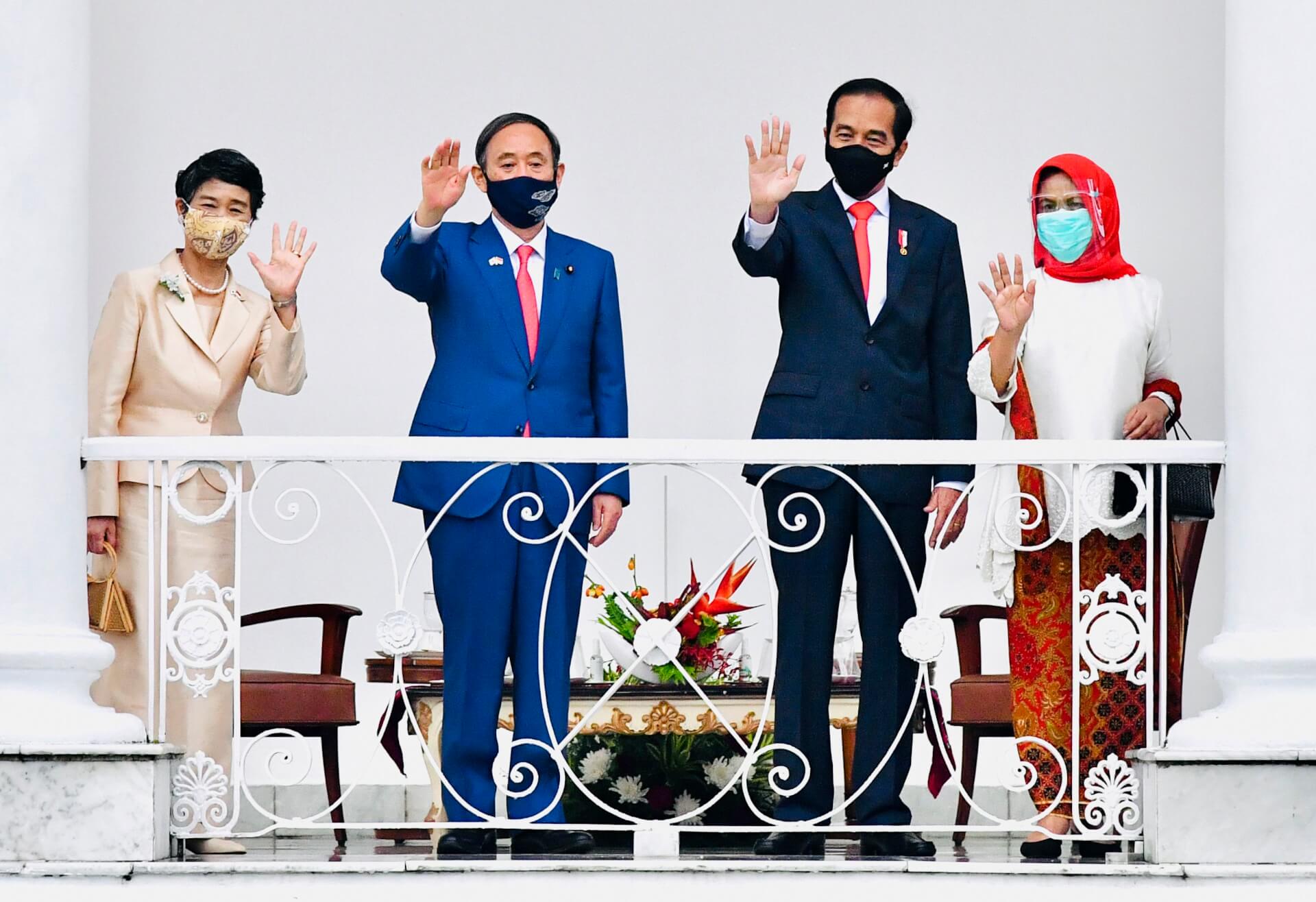Japanese Prime Minister Yoshihide Suga met with his Indonesian counterpart Joko Widodo on Tuesday to discuss ways to strengthen bilateral relations between the two nations in the face of growing Chinese assertiveness in the region.
PM Suga is on a four-day trip to Vietnam and Indonesia, his first since taking office last month, aimed at bolstering ties with two nations Tokyo considers as important partners to advance its “free and open Indo-Pacific” vision. Suga met his Vietnamese counterpart Nguyen Xuan in Hanoi on Monday, where the two nations agreed in principle on a military equipment and technology export pact. The leaders also agreed to resume regular flights between their nations at an early date.
During his Tuesday meeting with President Widodo, the two sides agreed to expedite talks on the export of Japanese defense gear and technology to Indonesia and to hold so-called ‘two-plus-two security talks’ between their defense and foreign ministers soon. Japan also agreed to provide ¥50 billion in long-term, low-interest loans to Indonesia to support its fight against COVID-19, as the nation has incurred the highest number of infections and deaths in Southeast Asia.
Speaking to reporters after the meeting, President Widodo said that a stronger partnership between the two nations was vital, “especially amid increasingly glaring rivalry between the world's big powers”, seemingly referring to the intensifying rivalry between United States (US) and China. Both, Indonesia and Japan are attempting to balance their deep economic ties with China, along with security concerns in the South and East China Seas.
Like other ASEAN nations, the two are wary of getting caught in between Washington and Beijing’s fight, and Indonesia has signaled that it does not intend to take sides. Japan, on the other hand, is a member of the “Quad” and will join the US, India, and Australia for naval exercises in the Bay of Bengal to signal resolve in countering Chinese aggression in the region. China, for its part, has vehemently rejected the Quad’s “Indo-Pacific strategy” and cautioned Asian countries against US disruption in the region.
As some nations are working to protect themselves from Chinese belligerence, others are looking to strengthen their ties with Beijing. North Korean leader Kim Jong-un on Tuesday responded to a message sent by China’s Xi Jinping on the 75th founding anniversary of the North's ruling Workers’ Party, by pledging to boost friendly relations with its most important trading partner. In his letter, Xi expressed China’s intent to “successfully defend, consolidate and develop” bilateral ties.
Japan, Indonesia Look to Strengthen Bilateral Ties
The two sides met on Tuesday and agreed to expedite talks on the export of Japanese defense gear and technology to Indonesia in the face of growing Chinese assertiveness in the region.
October 21, 2020

SOURCE: REUTERS
